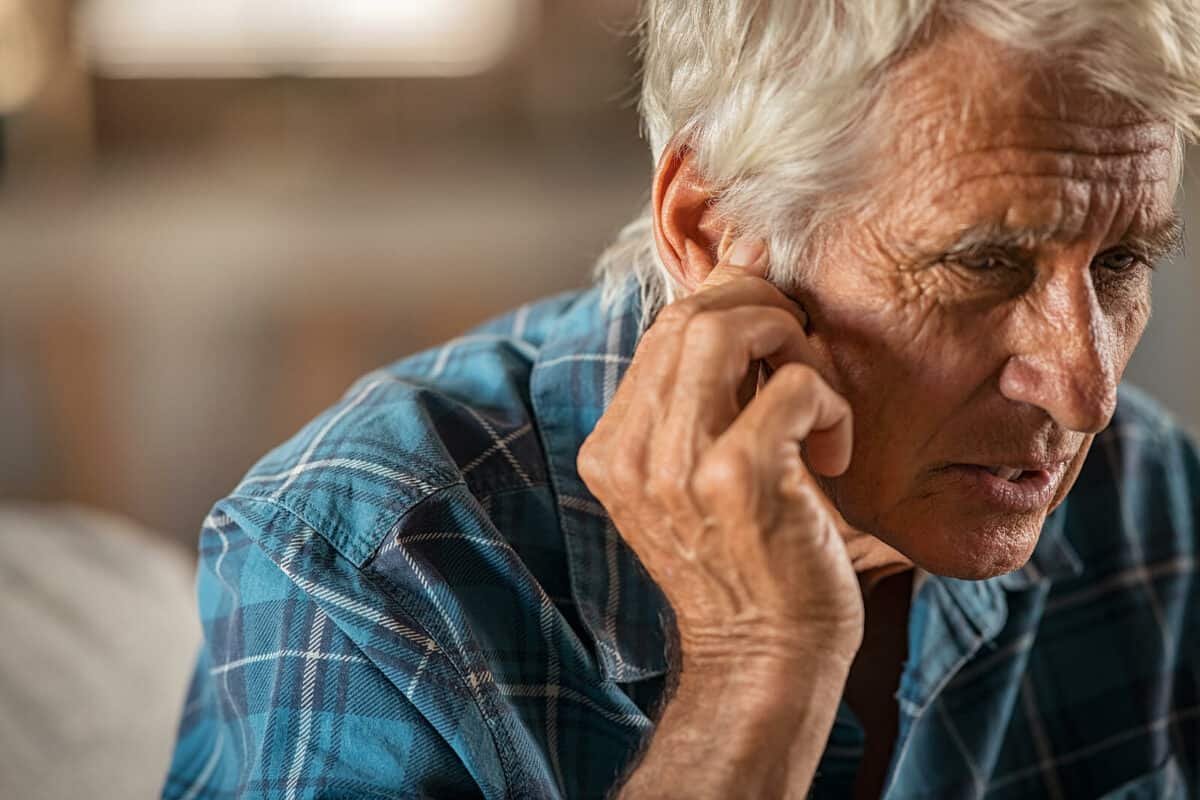Both osteoporosis and hearing loss impact older Americans at a higher rate. But their relationship may extend farther than that. A new study reveals a significant relationship between hearing loss and osteoporosis.
What is osteoporosis?
We tend to think of our skeleton, the bones in our body, as solid and unchanging. However, bones are living tissue and in a constant process of breaking down and rebuilding. In every body, the process of creating new bone begins to slow down at around the age of 30. Osteoporosis is when the bone mass we lose is not replaced fast enough with new bone. The bone density lessens and the quality of the bone is brittle, breaking easily.
Osteoporosis is much more likely to occur in White and Asian women past menopause, though anyone can have the condition. Warning signs of osteoporosis include compromised posture, loss of height, ongoing back pain or when a bone breaks more easily than anticipated.
Study finds that osteoporosis increases risk of hearing loss
The ongoing Nurses’ Health Study was established in 1976 and continues to provide insight into lifestyle and disease patterns over time. It is one of the largest longitudinal studies of its kind. It encompasses around 140,000 women whose data has been collected over a period of decades. Researchers from Brigham and Women’s Hospital used this rich data to examine the link between osteoporosis and hearing loss. Their findings reveal that the risk of hearing loss, both moderate and worse, was almost 40 percent higher among those within the study who also had osteoporosis or low bone density.
How aging impacts hearing
We already know that aging affects hearing, as age is the greatest predictor of hearing loss. One-third of people over the age of 65 has some degree of hearing loss, a ratio that increases even more as we age. Half of all people over the age of 80 experience hearing loss.
In most cases of age-related hearing loss, it is assumed that the cells of the inner ear are impacted by time. Like many cells within our body, the inner ear cells are non-regenerative and when they are harmed or die off, the body doesn’t replace or repair them. Instead, we have less to work with.
The inner ear cells play a major role in the process of hearing because they collect noise from the world and turn it into sound information for the brain to process. When we have less inner ear cells, our ability to hear the full spectrum of sounds decreases. Our brain receives less sound information and we hear less.
The link between bone density and hearing loss
However, this now established link between osteoporosis and hearing loss sheds light on another possible impact of age upon hearing. The study’s researchers suggest that changes in the bones of the inner and middle ear might contribute to hearing loss, specifically in the way that bone quality interfaces with the way the nerves and tissues of the hearing system are protected. Bone density may also impact the way fluids behave within the cochlea.
How to prevent bone density loss and hearing loss as we age
We can protect our hearing health by maintaining a regular schedule of hearing exams so that we are aware of any changes and fluctuations in the hearing system itself. Choosing to eat a diet rich in fruits, vegetables and fatty fish has been shown to boost both hearing health and lowers the risk of osteoporosis.
Regular, moderate exercise is also connected to staving off hearing health issues, but in order to specifically guard against osteoporosis, start lifting weights today. Weight lifting is one of the most reliable ways to build up bone density because the pressure assumed by the bones encourages new growth. Thankfully, fitness culture has caught up to the benefits of weight lifting for women. Many gyms, community centers and fitness studios offer women-specific weight training programs.
Schedule a hearing consultation
Begin prioritizing your hearing health today by scheduling your annual hearing consultation. Our team will lead you through the easy process of a hearing exam and guide you through your results. Together, we’ll find your healthiest hearing future.


